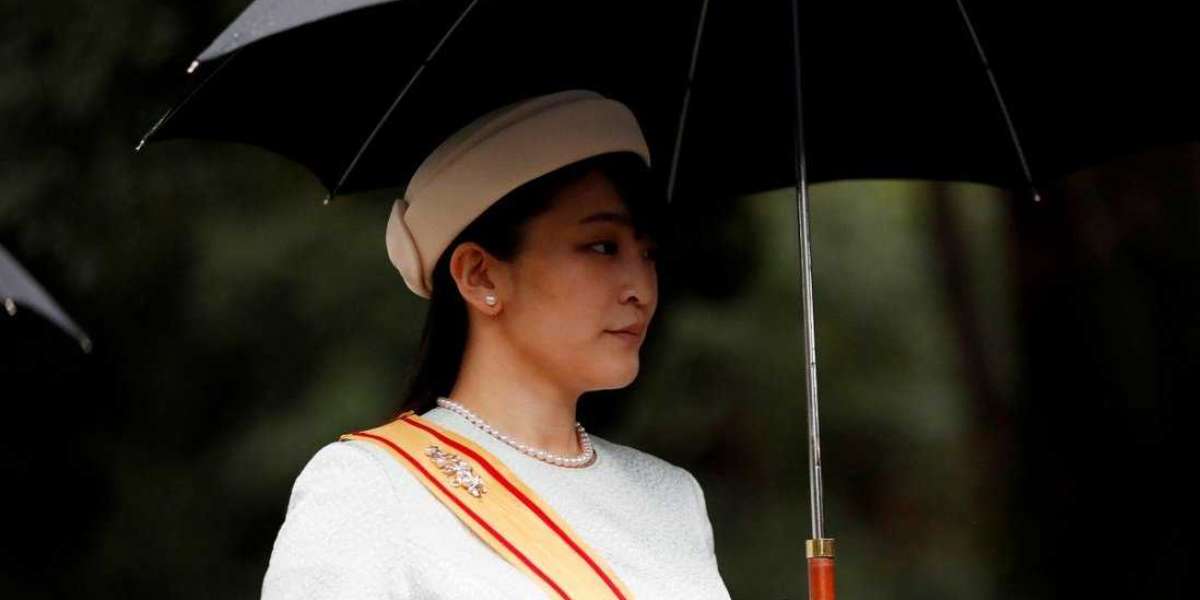The Imperial Household Agency announced on Friday that Princess Mako will marry her commoner boyfriend, Kei Komuro, on October 26. The announcement also took aim at the nation's tabloid media for its frenzied coverage of the couple's relationship over the last four years.
The agency confirmed that the wedding would take place before the end of the month, and that Mako, Emperor Naruhito's oldest niece, and Komuro would hold a press conference after the marriage was registered.
The couple is expected to relocate to the United States, where Komuro is employed by a law firm in New York.
The announcement stated that the princess was receiving treatment for PTSD as a result of the media's interest in her relationship with Komuro, who has been embroiled in a long-running controversy over allegations that his mother owes a former boyfriend 4 million yen (US$36,000) that was allegedly borrowed to pay for his university education.
Princess Masako, an Oxford-educated commoner who married then-Prince Naruhito in June 1993 and immediately became the subject of speculation about when she would give birth to a son and heir to the Chrysanthemum Throne, had a similar experience.
The announcement that the princess was pregnant eight years later was met with national joy – not least within the palace, which had not had a male born since 1965.
The public's joy at the birth of a healthy child was dampened by the news that the newcomer was a girl, and thus ineligible to carry the imperial line forward.
The princess developed an "adjustment disorder" as a result of the pressure to produce a son, according to the palace, and has been rarely seen in public since.
The couple has not had any more children since Naruhito's ascension to the Chrysanthemum throne, though the emperor's younger brother and Mako's father, Akishino, has averted an existential crisis for the Japanese monarchy by giving birth to a son, Prince Hisahito, who is now 15 and is expected to succeed his uncle.
Given the recent controversy surrounding the Komuro family's finances, the princess has declined the traditional lump-sum payment of around 150 million yen (US$1.3 million) given to female members of the imperial family who marry a commoner and leave the household. Her decision has caused some consternation because it is the first time the payment has been refused.
Similarly, the couple is not expected to perform traditional royal wedding rites such as the formal Nosai no Gi engagement ceremony and Choken no Gi, an official meeting with the emperor and empress prior to the wedding.
Many Japanese are wary of the marriage because of the negative publicity the Komuro family's financial dispute has brought the imperial family, but they hope the wedding will put the saga to rest.
“After so much uncertainty for so long, it's good that a date has finally been set and they can go ahead with the wedding,” said Fumio Takenaka, a 46-year-old Yokohama housewife.
Takenaka, who lives near Komuro's mother's apartment in the city's eastern suburbs, said, "If they are in love and want to spend the rest of their lives together, then that is their choice as adults and no one has the right to interfere in that decision." Komuro is also at the address right now, completing his coronavirus quarantine, with throngs of reporters waiting outside.
The throne, however, is Takenaka's sole reservation.
“I hope there will be no attempt in the future to rejoin the imperial family if they have a son who may have a rival claim to the throne as the son of Prince Akishino's oldest child,” she said. “I wish them well if they are truly relinquishing any claims to the imperial family, and I believe most Japanese people feel the same way.”



